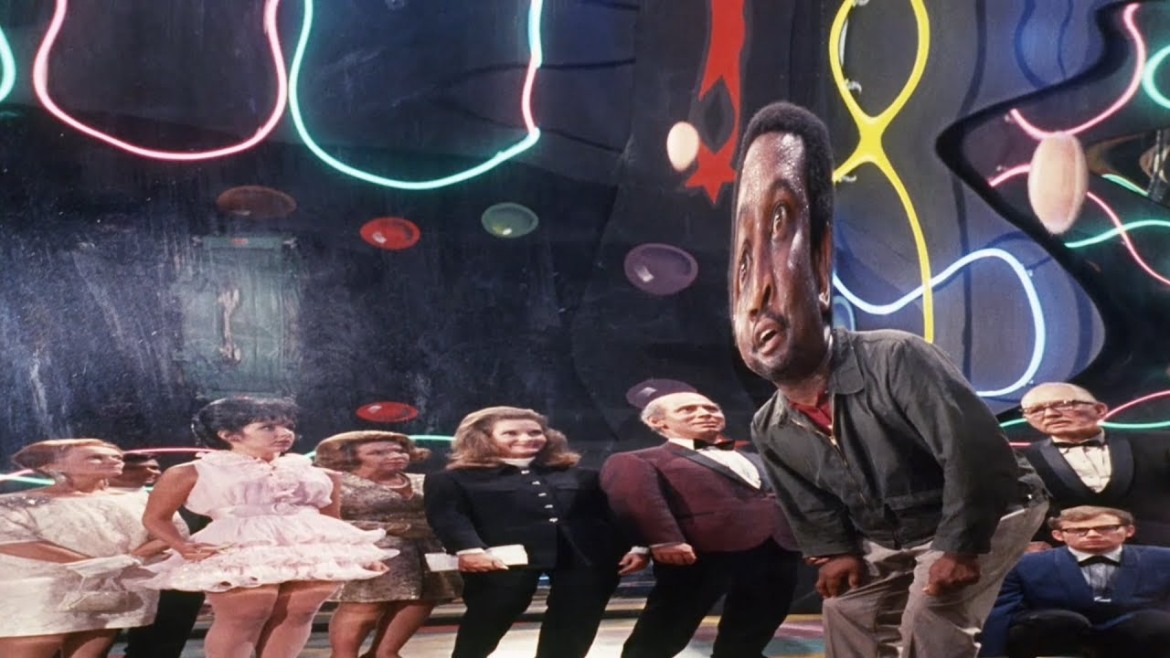One of the things that I missed most about FilmStruck was its curation, its ability to recommend and publicize films that I’d never even heard of. And while we lost that to a degree, I’m glad to report that the Criterion Channel is still trying to fill that void. Thanks to them, we can now see Jules Dassin’s fantastic Uptight, co-written by Ruby Dee and Julian Mayfield, which updates Liam O’Flaherty’s The Informer to the days following Martin Luther King’s assassination in 1968.

Uptight opens with King’s funeral and then zeroes in on a group of black activists in Cleveland, led by Johnny (Max Julien) and B.G. (Raymond St. Jacques). Reeling from the assassination of King, many in the group believe that the path of nonviolent resistance has failed and they need to arm themselves for violent revolution. Johnny leads a group to steal a cache of firearms from a Cleveland warehouse. Tank (Julien Mayfield) is supposed to help with the heist, but gets drunk while watching King’s funeral, refuses, and is finally expelled from the group. During the robbery, Johnny shoots and kills a security guard, setting off a city-wide hunt. Jobless and apparently friendless, Tank wanders the streets in despair and accidentally discovers Johnny’s whereabouts, later outing his friend to the cops for the $1000 reward. Tank spends the rest of the film coming to terms with his treachery and its consequences, as it plays out against the backdrop of debates within the black revolutionary community between nonviolence and the overarching sense of loss, anger, and violence.
Superficially, Uptight is very similar to its source material and the John Ford film version of The Informer. What makes Uptight so intense is its closeness to the issue of black activism in the wake of King’s death – made in 1968, the same year as the assassination, it has more than a topical feel, a sense that no time has really passed (as it hasn’t in the story), that there’s been no moment of respite to distill anger from despair. It evinces passionate sympathy with the men and women who now advocate for bloody revolution after a leader has been gunned down, while also showcasing the debates within the revolutionary community. The anger on screen is palpable and takes many forms, from B.G.’s intellectual solidity that formulates philosophy to support his cause, to Johnny’s radicalizing, to Tank’s tortured anguish that opens the film and only increases as it proceeds. The cast is almost entirely black – there’s one white character of any note, in addition to a few cops and party-goers – and Dassin is even willing to slow down the plot to allow for debate between ideologies, camps, and motivations.
Tank is an unpredictable figure, and his friendship with and eventual immolation of Johnny is as much about his own self torture and self-hatred as it is about trying to dig his way out of personal poverty. The tension between social ideology, political upheaval, and personal needs pulls Tank this way and that – he’s been ousted from his group, he loves his friend, he wants to help his girlfriend out of poverty, he wants to prove himself a good revolutionary, he’s unemployed and has no money, he wants to prove himself a man. This tension is expressed by the camera eye right from the start, as angles, people, and places are drawn apart, canted, saturated with color and then rendered dank and dark. Dassin’s camera dwells on Mayfield’s expressive face as he desperately attempts to be all things to all people, making mistake after mistake along the way until he damns himself. A stirring, nightmarish sequence as Tank wanders from bars to steel yards to fun fairs showcases Dassin’s fantastic eye, the images distorting both through Tank’s eyes and within the world that surrounds him. It is a descent into hell as Tank holds forth about the “black revolution” to a group of white people, his behavior a strange, wild parody of the caricatures of black men by white society and cinema.
Ruby Dee co-wrote the screenplay and appears as Laurie, Tank’s prostitute girlfriend attempting support her children. If there is a moral conscience of the film, she is it – not a revolutionary or a radical, but a woman trying desperately to survive and keep her family alive, living day to day in a slum. She is a reminder of the heart of poverty and racial inequality, stripped of ideology and philosophy. She is Mary Magdalen and the Virgin Mary brought into one being, a stark figure who stands out amid the male apostrophizing as a real plea for a savior.
Uptight is a canted Christ tale from the perspective of Judas. As Barry Jenkins elucidates in his introduction on the Criterion Channel, it’s also too little known. It’s a fantastic, harrowing, scarring film, as essential today as it was in 1968.
Uptight is available to stream on the Criterion Channel.
FOLLOW US ON: FACEBOOK, TWITTER
WANT TO SUPPORT ORIGINAL CONTENT CREATED BY WOMEN? THEN CONSIDER SUPPORTING CITIZEN DAME ON PATREON!
Interested in contributing your writing (either pre-written or original) to Citizen Dame? Consider joining our guest contributor program


